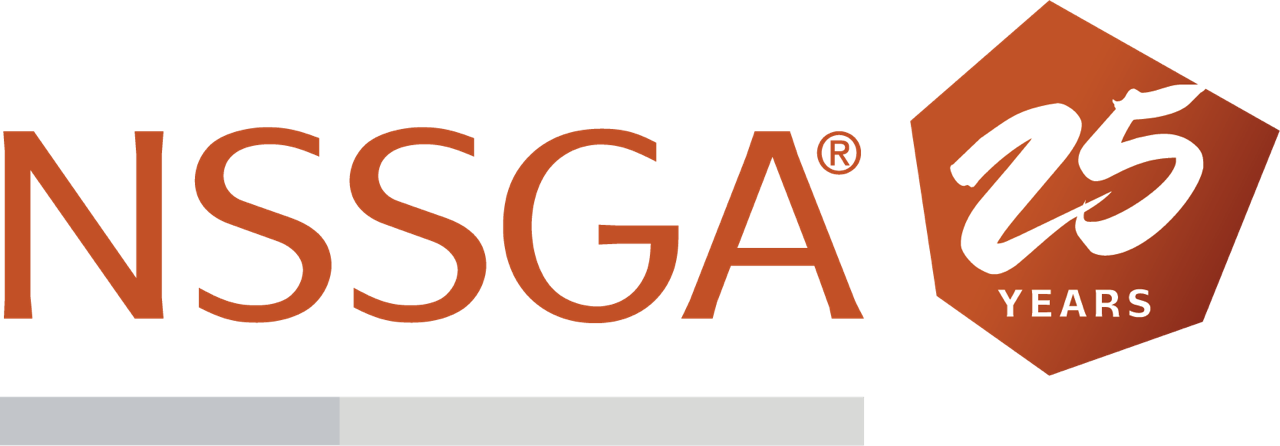Gearing Up for LPF – Policy Positions

By Evan Bender, NSSGA
The Annual NSSGA Legislative & Policy Forum (LPF) gives our members a valuable opportunity to advocate for the industry and leave a lasting impression on policymakers. While the NSSGA government affairs team frequently meets with members of Congress and their staff, nothing is more powerful than having you, as constituents and industry operators, advocate in the halls of Congress.
The 118th Congress has advanced important legislation, such as FAA reauthorization, Appropriations and WRDA. As these measures are considered, NSSGA has ensured industry priorities are met. On the other hand, more work can always be done. A tax bill has stalled out, another surface transportation reauthorization bill is on the horizon and there are several concerning regulatory issues including the silica exposure rule, PM 2.5 and Buy America implementation. As we gear up for LPF, we can celebrate the legislative wins while recognizing this is an opportunity for our industry. We must continue pushing for aggregates-friendly policy solutions that will improve our infrastructure, build sustainable communities and grow our economy. There are always more conversations and advocacy efforts that need to take place to make our voice heard in Washington.
While we don’t yet know what Congress or the White House will look like in January 2025, we do know the upcoming issues that will affect the aggregates industry. As we close the book on the 118th Congress and look toward the future, we need to ensure we are laying the groundwork for both the expiration of President Trump’s Tax Cuts and Jobs Act, as well as the next highway reauthorization bill. Let’s review some of the top issues that will be our focus at LPF.
Highway Trust Fund Solvency
While we applaud Congress and the Biden administration for providing five more years of solvency for the Highway Trust Fund, Congress must look beyond that timeframe to ensure long-term solvency. The next surface transportation reauthorization bill must incorporate visionary and evolutionary revenue increases to avoid a devastating shortfall. NSSGA supports sustainable revenue sources to adequately fund needed investments and create financial certainty, including vehicle-miles-traveled (VMTs), bonding measures, registration fees for electric vehicles, national registration fee and the raising and indexing of the federal gas tax, which has been unchanged for nearly 30 years. As discussions about the Highway Trust Fund unfold, we at NSSGA advocate for comprehensively considering all potential funding methods. It’s crucial to explore sustainable and stable funding sources while explicitly avoiding reliance on yearly appropriations, which could jeopardize the consistency and effectiveness of infrastructure investments.
A Tax Structure That Supports Growth
A revenue code that encourages investments in infrastructure development and allows families and businesses who operate quarries to create and support high-paying jobs is critical to a growing and sustainable economy. NSSGA supports sensible reforms to our tax laws that remove undue burdens and allow for industry innovation. NSSGA will continue working with Congress and the administration on tax code changes that advance the stone, sand and gravel industry, including:
- Permanent expansion of bonus depreciation that began to phase out on Jan. 1, 2023, as it provides aggregates operators the certainty to make necessary capital investments that create jobs and grow our economy.
- Reverting R&D deduction limitations so that research and development expenses are deductible within the same fiscal year instead of over an extended period of time.
- Maintaining Corporate Tax Rate of 21 percent, without an additional minimum tax.
- Permanent extension of Section 199A, 20 percent deduction for qualified business income, as it is scheduled to sunset at the end of 2025.
- Full repeal of the 40 percent federal estate tax, which is levied on estate’s valued at greater than $10 million. However, this is also set to expire at the end of 2025 and revert to estates valued at great than $5 million at the time of death.
- Opposing efforts to repeal the percentage depletion allowance that incentivizes aggregates producers to make new investments by providing a 5 percent capital cost recovery method for sand, gravel and crushed stone and 14 percent for industrial sand development.
Register for the 2024 LPF
NSSGA’s Legislative & Policy Forum (LPF) aims to tell the story of the aggregates industry and promote policies important to our members. We invite every member to attend this meeting on Sept. 24-27 in Washington, D.C.. For more information on the NSSGA’s industry priorities, visit nssga.org.
Unnecessary Workforce Standards
Aggregates and industrial sand producers are committed to promoting the health and safety of their most precious resource—their workers. We support reasonable regulations and standards that are based on sound science. Working proactively with federal partners, like MSHA, is essential to creating even safer workplaces. We support an MSHA rule on respirable crystalline silica that is both protective of workers and reasonable for employers. However, we are concerned about numerous rulemakings at the Department of Labor that do not make the industry a safer or heathier workplace but only add unworkable mandates and regulations.
Material Neutrality
NSSGA strongly believes Congress should maintain a material-neutral approach and not legislate market share. NSSGA opposes attempts by competing materials to utilize legislation like the National Defense Authorization Act, the Farm Bill and appropriations bills to promote market share by establishing material-specific deployment programs. When executing federal investments, material choice decisions should be left to engineers and construction professionals with the expertise and local knowledge to plan and successfully execute projects.
Buy America Exclusion Implementation
In August 2023, OMB issued final guidance and an amendment to the Code of Federal Regulations implementing the Build America, Buy America Act (BABAA). The OMB guidance recognizes the Section 70917(c) exemption of "cement and cementitious materials, aggregates such as stone, sand, or gravel, or aggregate binding agents or additives," as well as wet concrete and asphalt. Implementation challenges continue to persist, as state DOTs and other procurement authorities work to develop compliant procurement regimes. Reasonable guidance from the Federal Highway Administration (FHWA) on BABAA certification forms and processes is needed to remove certification form confusion, inconsistency and delay. Moreover, FHWA guidance is needed to clarify BABAA compliance at the APL/QPLs level. OMB’s intention to regularly convene "inter-agency workgroups" to ensure "that federal agencies implement BABAA in a consistent, uniform, efficient and transparent manner" should include participation by state DOTs to hasten consistent BABAA implementation across all states.
With these critical issues in mind, we hope you join us on September 24-27 in our nation’s capital. Your voice, industrial knowledge and advocacy now will make the policy outcomes in 2025 and 2026 a success.
Originally published in Sep./Oct. 2024 Stone, Sand & Gravel REVIEW.

